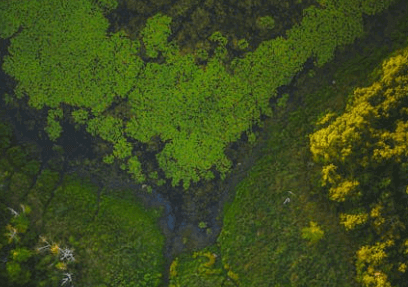Protecting our planet’s natural beauty and resources is more critical than ever. Research shows that only 18% of land essential for biodiversity and human well-being is currently protected, while at least 44% of Earth’s surface needs conservation to sustain ecosystems. Working alongside experts can make all the difference for those considering buying land for conservation or preservation. Steve Daria and Joleigh, renowned real estate investors and cash land buyers, have helped countless clients achieve their conservation goals with smart, effective strategies. Whether you’re preserving wildlife habitats or safeguarding native landscapes, their expertise ensures informed decisions. With so much at stake, knowing the best approaches to buying land for conservation or preservation can lead to long-lasting, meaningful impacts. Interested in how to get started? Book a free discussion today with Steve and Joleigh and take your first step toward preserving nature’s legacy!
Key Points
- Research Local Conservation Needs and Policies: Before purchasing land, investigate the area’s specific environmental or preservation needs. Understanding local conservation policies, land-use restrictions, and regional habitat priorities helps ensure the land aligns with your goals.
- Assess the Land’s Ecological Value: Identify critical property features such as protected species, water sources, or biodiversity. Hiring an ecologist or environmental consultant can provide insight into the land’s natural resources and ensure its ecological potential is preserved.
- Partner with Trusted Experts and Organizations: Collaborate with experts, including land trusts, conservation organizations, or seasoned real estate investors like Steve Daria and Joleigh. Their experience in acquiring conservation properties can guide you through the process and help you maximize your impact.
- Ensure Financial Feasibility and Funding: Calculate all costs, including land purchase, maintenance, and potential restoration expenses. Seek grants, tax incentives, or partner with conservation groups to alleviate costs and support your preservation goals.
- Develop a Long-Term Land Management Plan: Plan for the land’s long-term conservation by outlining how it will be maintained and protected. This may include strategies for habitat restoration, erosion control, or even setting up easements to ensure the property remains preserved for future generations.
What is land conservation, and why is it important?
Land conservation protects natural spaces to ensure they remain unspoiled and continue supporting ecosystems, wildlife, and human well-being.
It involves safeguarding land from development, deforestation, or other activities that can harm its natural state.
Conservation is crucial because it helps maintain biodiversity, which is essential for a healthy planet.
Preserved land filters our air and water, supports habitats for thousands of species, and provides spaces for outdoor recreation.

Statistics show that only a small percentage of Earth’s land is actively protected, which makes efforts to conserve more land even more urgent.
By buying land for conservation or preservation, individuals and organizations contribute to preventing habitat loss and sustaining vital ecosystems.
Additionally, conservation can also help combat climate change by preserving forests and wetlands that absorb carbon dioxide.
Protecting land today leaves a lasting legacy for future generations, ensuring they benefit from clean air, water, and thriving natural environments.
Get Started: Get Your Cash Offer Below…
We are direct land buyers. There are no commissions or fees and no obligation whatsoever. Start below by sharing where your property is and where we can send your offer…
How does land preservation benefit the environment and communities?
Land preservation offers numerous benefits for both the environment and local communities.
By protecting open spaces, forests, wetlands, and natural ecosystems, it helps maintain biodiversity by providing habitats for plants and animals.
Preserved land improves air and water quality by filtering pollutants, reducing soil erosion, and replenishing groundwater.
For communities, these preserved areas offer green spaces that promote mental and physical health, recreational opportunities, and a stronger connection to nature.
Economically, it can enhance property values, attract tourism, and reduce costs related to environmental degradation.
By buying land for conservation or preservation, individuals and organizations also help combat the effects of climate change by protecting carbon-absorbing areas like forests and marshes.
Communities benefit from the long-term stability of preserved land, as it helps with flood control, food security, and sustainability.
Ultimately, land preservation creates healthier ecosystems and more resilient communities for current and future generations.
What should I consider before buying land for conservation or preservation?
- Understand the Land’s Current Condition: Check the land’s ecosystems, soil quality, and any existing wildlife habitats. This will help you determine what preservation efforts are needed and whether the land aligns with your conservation goals.
- Research Zoning and Legal Restrictions: Ensure the land’s zoning laws and legal status allow for conservation or preservation efforts before buying. Look into easements, permits, or restrictions that could impact your plans for the land.
- Evaluate Long-Term Management Needs: Consider what it will take to manage and maintain the land. This includes controlling invasive species, monitoring regularly, and ensuring protection against future development.
- Assess Environmental and Community Impact: Think about how your conservation or preservation plans will benefit the environment and local community. Land that supports biodiversity, prevents erosion, or offers recreational space can have significant positive impacts.
- Set a Clear Budget and Financial Plan: Evaluate not only the upfront purchase price but also the long-term expenses associated with land preservation. A well-rounded financial plan should factor in potential grants, taxes, and ongoing maintenance expenses required for ownership and conservation.

Are there financial incentives available for land conservation purchases?
Yes, there are financial incentives available for land conservation purchases.
Many governments and organizations offer tax benefits to encourage individuals and groups to protect natural areas.
For example, conservation easements can provide significant tax deductions if the land is permanently preserved for ecological purposes.
Some states and local governments provide grants or funding programs to help with costs related to conservation efforts.
Buying land for conservation or preservation may also qualify for reduced property taxes, especially if the land is used for agriculture, forestry, or environmental protection.
Additionally, nonprofits and conservation groups often collaborate with landowners to create funding opportunities or cost-sharing programs.
These incentives make it more affordable to conserve land and help promote environmental stewardship.
By conducting thorough research and thoughtful planning, you can maximize these financial advantages while actively supporting a healthier planet.
What are the possible risks involved in buying land for conservation or preservation purposes?
- Environmental Issues: The land may have hidden environmental problems, like soil contamination or water pollution. Fixing these issues can be expensive and take a long time, which is something to consider before buying land for conservation or preservation.
- Zoning and Legal Restrictions: Some lands have strict zoning laws or legal rules that might limit your conservation plans. Before purchasing land for conservation or preservation, it is important to ensure the property aligns with your goals and legal expectations.
- Management Costs: Maintaining the land can involve ongoing expenses like removing invasive plants or restoring habitats. These costs can add up over time, so proper budgeting is essential to meeting conservation needs.
- Property Disputes: Land boundaries can sometimes be unclear, leading to disputes with neighbors or challenges to ownership. This can result in costly legal issues that need to be resolved to secure the property.
- Changes in Laws or Policies: Regulations for conservation lands can shift over time, potentially affecting what you’re allowed to do with the property. It’s important to stay informed about local and national policies that could impact your conservation efforts.
- Limited Accessibility: Some conservation land might be difficult to access due to poor infrastructure or challenging terrain. This can complicate management efforts and make it hard to carry out restoration or monitoring activities.
- Unexpected Natural Issues: Natural disasters like flooding, wildfires, or erosion can damage the land and its ecosystems. These risks can lead to significant recovery costs and require additional prevention measures to protect the property.
What are the key steps to finalize the purchase of conservation or preservation land?
To finalize the purchase of conservation or preservation land, it’s important to follow key steps to ensure the process goes smoothly.
Begin with a comprehensive environmental assessment to assess the land’s condition and pinpoint conservation challenges, such as restoration requirements or the presence of invasive species.
Next, review zoning laws and property boundaries to confirm the land is suitable for your conservation plans.
Ensure no legal complications, such as liens, easements, or contested ownership, could interfere with the transaction.
When buying land for conservation or preservation, exploring tax incentives, grants, or funding programs that might reduce costs is essential.
Consult with an experienced attorney and real estate professional to guide you through complex negotiations and contracts.
Double-check the title’s clarity and any legal paperwork before closing to avoid surprises later on.
If you need expert guidance, Steve Daria and Joleigh bring valuable experience as seasoned real estate investors and land buyers for cash.
Their expertise can streamline the process and help you make sound choices.
Get in touch with them today to take the next step toward securing your conservation land with confidence!
**NOTICE: Please note that the content presented in this post is intended solely for informational and educational purposes. It should not be construed as legal or financial advice or relied upon as a replacement for consultation with a qualified attorney or CPA. For specific guidance on legal or financial matters, readers are encouraged to seek professional assistance from an attorney, CPA, or other appropriate professional regarding the subject matter.
